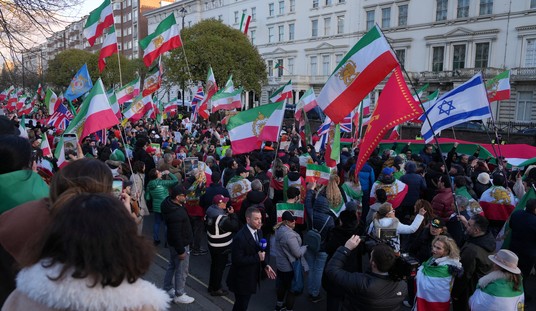WASHINGTON -- It is the conservative critique of the freedom agenda that democratic transformations are hopeless or dangerous in societies lacking democratic cultures. The people of Iraq, said George F. Will, are "just three people away from democratic success. Unfortunately, the three are George Washington, James Madison and John Marshall." Middle Eastern tyrants, Peggy Noonan once argued, "have functioned in history as -- ugly imagery coming -- garbage-can lids on their societies. They keep freedom from entering, it is true. But when they are removed, the garbage -- the freelance terrorists, the grievance merchants, the ethnic nationalists -- pops out all over."
The Arab winter of discontent provides evidence to assess the claim that Arab peoples are leaderless trash. It is true that few world-historic figures have emerged from these events. Mohamed ElBaradei and Amr Moussa will not be confused with Vaclav Havel or Nelson Mandela. Even Wael Ghonim -- the Google guy -- symbolizes a new type of decentralized, Web-based leadership rather than providing it himself.
But a leaderless revolution is impressive in its own way. Whole nations have reached a critical mass of humiliation. Technology has provided both a comparison to more successful societies and a mechanism to collect and channel discontent. Politicians and opportunists of various stripes have struggled to keep up with a generational revolt.
While the revolution is democratic in form, it may take a while to get the content right. Civic institutions in the Middle East -- political parties, courts and electoral systems -- are weak by the design of dictators. Democratic transitions can be difficult. Even Washington, Madison and Marshall presided over a democratic culture in which one in seven human beings was eventually owned by another -- a contradiction only resolved by a civil war that left an estimated 6 million pounds of human and animal carcasses lying on a field near Gettysburg. I suspect that Arab transitions, whatever their difficulties, will be better than this.
Recommended
No good outcome is guaranteed. But two things have changed permanently in the Middle East.
First, the people of that region now have heroes of reform, who look exactly like themselves. They have seen Arab men and women impatient with injustice and capable of unsuspected greatness. With little help from outsiders -- and no leadership from the United States -- Arabs have demanded accountable government. Generations will recall these shining events, which serve the symbolic purpose of Bunker Hill.
Second, every Arab ruler, from colonels to monarchs, now knows something new: fear. The political theory they have offered since Nasser -- nationalism without freedom -- has produced backward economies, corrupt elites and angry citizens. Leaders are waking to find themselves in a besieged palace or boarding a plane for exile. Even in the absence of a working democracy, this is a form of accountability. It is a good thing for a government to fear the governed.
With exquisite timing, some conservatives have chosen this moment to expand their critique of Islam, discerning (like Glenn Beck) the first signs of the coming global caliphate. Is Islam compatible with democracy? "It is not," says Andrew McCarthy, "it never has been, and it never will be." Violence and coercion, he argues, are essential to Islam. The intensity of this view seems to increase as evidence for it is contradicted.
Never mind that practitioners of every religion with roots in ancient and medieval cultural practice must confront and marginalize disturbing aspects of their own traditions. Never mind that Islam takes vastly different theological forms in Saudi Arabia, Albania, Bangladesh and Indonesia. Never mind that since 9/11, America has found Muslim allies willing to die at our side in the fight against Islamic radicalism. Just to demonstrate some connection to reality, perhaps conservatives should delay their criticisms of Islam's irredeemable violence until after the inspiring, courageous, mainly peaceful protests of Muslims in the Middle East draw to a close.
For some conservatives, liberty is only found in their private stock, aged in Anglo-Saxon cellars, to be sipped and savored at their leisure. But much of the world, it turns out, is thirsty and cares little about the vintage. Perhaps it is natural for a revolutionary power to grow old and cautious, producing thinkers who prefer stability to idealism. But it is sad. Americans such as Lincoln, FDR and Reagan did not believe in the existence of permanent tyranny because they did not accept the possibility of permanent servitude. Eventually the mind and soul of man revolt. As some are perpetually surprised to witness.

























Join the conversation as a VIP Member